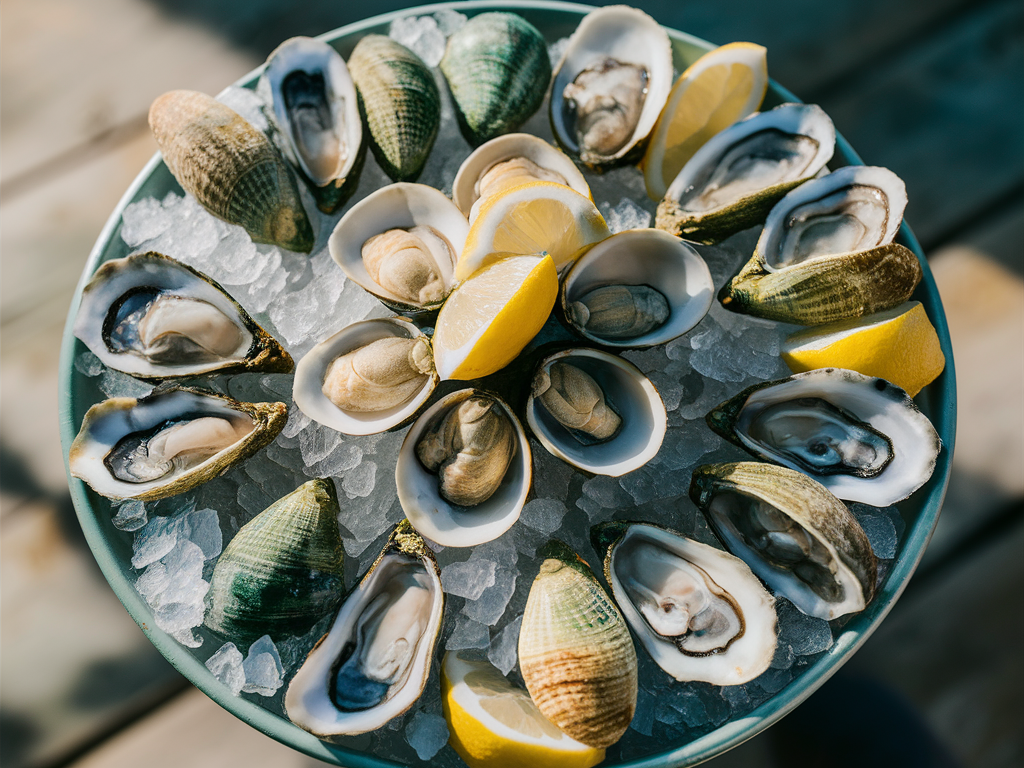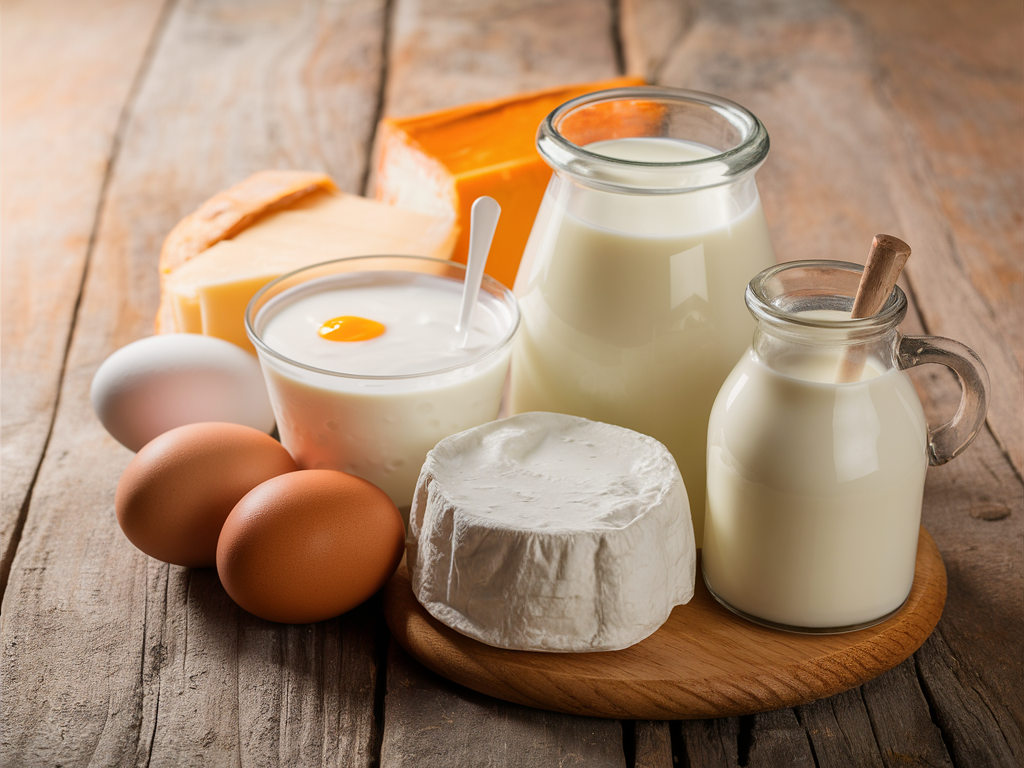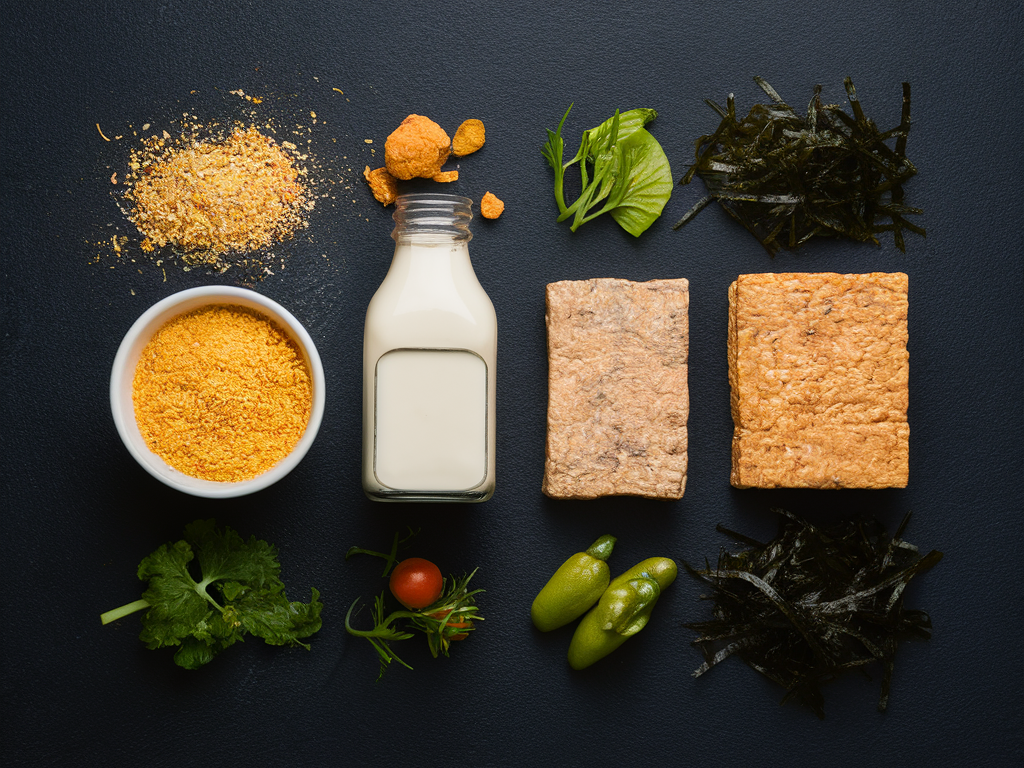Vitamin B12 is a vital nutrient that plays a crucial role in maintaining optimal health. This water-soluble vitamin, also known as cobalamin, is essential for nerve function, DNA synthesis, red blood cell formation, and cognitive performance. Unfortunately, many people worldwide suffer from vitamin B12 deficiency, which can lead to serious health complications including anemia, neurological disorders, and cognitive decline.
The recommended daily intake of vitamin B12 for adults is 2.4 micrograms, with slightly higher amounts recommended for pregnant and breastfeeding women. While vitamin B12 deficiency is particularly common among vegans and vegetarians due to limited natural plant sources, anyone can experience low B12 levels, especially older adults who may have reduced absorption capacity.
In this comprehensive guide, we’ll explore 15 excellent food sources of vitamin B12 that you can incorporate into your diet to maintain healthy levels of this essential nutrient. From animal-based options that are naturally rich in B12 to plant-based and fortified alternatives suitable for vegetarians and vegans, we’ve covered a variety of delicious and nutritious choices.
Animal-Based Vitamin B12 Sources
1. Clams and Other Shellfish
Clams stand as the undisputed vitamin B12 champions in the food world. A 3-ounce (85g) serving of clams provides an astonishing 84 micrograms of vitamin B12, which is 1,400% of the Daily Value (DV). This makes them one of the most concentrated natural sources of B12 available.
Beyond their impressive B12 content, clams are also excellent sources of iron, providing nearly 24 mg per serving (133% DV), along with significant amounts of protein, selenium, and zinc. They’re relatively low in calories and fat, making them a nutrient-dense addition to your diet.
For maximum nutrition and flavor, steam clams just until their shells open (about 5-10 minutes). Overcooking can toughen the meat and potentially reduce some nutrient value. Enjoy them with a squeeze of lemon juice and herbs for a simple, nutritious meal.

2. Beef Liver
Organ meats, particularly beef liver, are nutritional powerhouses. A 3-ounce (85g) serving of cooked beef liver contains approximately 70 micrograms of vitamin B12, providing an impressive 1,168% of the DV.
Beef liver doesn’t stop at B12—it’s also rich in vitamin A, iron, copper, folate, and other B vitamins. In fact, it’s often considered nature’s most concentrated source of nutrients, though its strong flavor can be an acquired taste.
To maximize nutrient retention while moderating its strong flavor, try soaking liver in milk for 30 minutes before cooking, then pan-searing it for just 2-3 minutes per side until medium-rare. Combining it with onions, herbs, and spices can help make this nutritional powerhouse more palatable.
3. Salmon
Salmon is not only delicious but also a significant source of vitamin B12. A 3-ounce (85g) serving of cooked wild Atlantic salmon provides about 2.6 micrograms of vitamin B12, which is 108% of the DV.
Wild-caught salmon typically contains higher B12 levels than farmed varieties, though both are good sources. Salmon is also renowned for its omega-3 fatty acids, high-quality protein, potassium, selenium, and B vitamins, making it a heart-healthy choice.
For optimal nutrition, bake, broil, or grill salmon rather than frying it. Cooking salmon to medium (internal temperature of 125-130°F or 52-54°C) preserves its moisture and nutrient profile. A simple preparation with olive oil, lemon, and herbs allows the fish’s natural flavors and nutritional benefits to shine.
4. Tuna
Tuna is another excellent seafood source of vitamin B12. A 3-ounce (85g) serving of cooked yellowfin tuna provides about 2.5 micrograms of vitamin B12, or 104% of the DV. Canned light tuna contains slightly less, at around 1.5-2 micrograms per serving.
When consuming tuna, it’s important to consider mercury content. Light tuna generally contains less mercury than albacore or yellowfin varieties. The FDA recommends limiting albacore tuna to one serving per week for sensitive populations (pregnant women and young children).
Tuna can be enjoyed in various ways—grilled as steaks, in salads, casseroles, or sandwiches. For a quick B12 boost, try a tuna salad made with Greek yogurt instead of mayonnaise, or a Mediterranean-style tuna wrap with olive oil and vegetables.
5. Beef
Beef is a reliable source of vitamin B12, with different cuts providing varying amounts. A 3-ounce (85g) serving of lean ground beef provides approximately 2.1 micrograms of vitamin B12, or 88% of the DV.
Beyond B12, beef delivers complete protein, zinc, selenium, iron (particularly heme iron, which is highly absorbable), phosphorus, and B vitamins including niacin and riboflavin.
To prepare beef in the healthiest way, choose leaner cuts like sirloin or tenderloin, trim visible fat before cooking, and use methods like broiling, grilling, or roasting that allow fat to drain away. Portion control is key—a serving size of beef should be about the size of your palm.
6. Lamb
Lamb is another red meat that provides significant amounts of vitamin B12. A 3-ounce (85g) serving of cooked lamb contains approximately 2.3 micrograms of vitamin B12, or about 96% of the DV.
In addition to B12, lamb is rich in high-quality protein, zinc, selenium, and iron. It also contains conjugated linoleic acid (CLA), which has been studied for potential health benefits including reducing body fat and improving immune function.
For a simple preparation that preserves lamb’s nutritional value, try seasoning lamb chops with herbs like rosemary and thyme, then grilling or broiling to medium-rare or medium. Slow-cooked lamb stews and braises are also excellent options that enhance flavor while maintaining nutrient content.
7. Eggs
Eggs provide a moderate but valuable amount of vitamin B12. One large egg contains approximately 0.6 micrograms of vitamin B12, or 25% of the DV. The B12 is concentrated in the yolk, so whole eggs must be consumed to benefit.
Eggs are nutritional all-stars, offering high-quality complete protein, choline (essential for brain health), lutein and zeaxanthin (important for eye health), vitamin D, and various B vitamins.
Their versatility makes eggs one of the easiest B12 sources to incorporate into your diet. From scrambled eggs at breakfast to hard-boiled eggs as snacks, or added to salads and sandwiches, eggs can be enjoyed throughout the day. For maximum nutrition, try not to overcook the yolks, as extreme heat may reduce some vitamin content.
8. Milk and Dairy Products
Dairy products are reliable sources of vitamin B12. One cup (240ml) of whole milk provides about 1.1 micrograms of vitamin B12, or 46% of the DV. Other dairy products like yogurt and cheese also contain significant amounts—one cup of plain yogurt provides about 1.3 micrograms of B12 (54% DV), while 1 ounce of Swiss cheese offers 0.9 micrograms (38% DV).
Beyond vitamin B12, dairy products are excellent sources of calcium, complete protein, phosphorus, potassium, and vitamins A and D (when fortified). The combination of calcium and vitamin D makes dairy particularly valuable for bone health.
Incorporate dairy into your daily routine by adding milk to breakfast cereals, enjoying yogurt as a snack with fruit and nuts, or using cheese as a flavor-enhancing topping for salads and vegetables. For those concerned about fat content, low-fat and non-fat options are available that retain the B12 content.

Plant-Based and Fortified Sources of B12
9. Nutritional Yeast
Nutritional yeast has become a staple for many vegetarians and vegans due to its cheese-like flavor and nutritional profile. Fortified nutritional yeast (the most common type) typically provides about 5-8 micrograms of vitamin B12 per tablespoon, though amounts vary by brand.
Beyond B12, nutritional yeast offers complete protein (containing all nine essential amino acids), fiber, and other B vitamins. It’s typically low in sodium and calories, making it a nutrient-dense addition to foods.
This versatile ingredient can be sprinkled on popcorn, pasta, roasted vegetables, or salads for a cheese-like flavor. It also works well in sauces, soups, and dips. When purchasing nutritional yeast for B12 content, always check the label to confirm it’s fortified, as unfortified varieties don’t provide reliable B12.
10. Plant-Based Milk Alternatives
Many plant-based milk alternatives are fortified with vitamin B12. A typical serving (1 cup or 240ml) of fortified soy, almond, oat, or rice milk can provide approximately 1-1.5 micrograms of vitamin B12, or about 42-62% of the DV, though this varies significantly by brand.
When comparing brands, look for options that also offer good amounts of calcium, vitamin D, and protein. Soy milk typically has the highest protein content among plant milks, while almond milk is usually lower in calories. Some brands also add omega-3 fatty acids for additional nutritional benefits.
These versatile beverages can be used just like dairy milk—in coffee or tea, on cereal, in smoothies, or for baking and cooking. Always check labels to confirm B12 fortification, as not all plant milks are fortified equally.
11. Fortified Breakfast Cereals
Many breakfast cereals are fortified with vitamin B12 and other nutrients. A typical fortified cereal can provide anywhere from 25% to 100% of the DV for vitamin B12 per serving, with some offering the full 2.4 micrograms or more.
When selecting fortified cereals, it’s important to read nutrition labels carefully. Look for options that are lower in added sugars (under 6g per serving is ideal) and higher in fiber (aim for at least 3g per serving). Some cereals also provide significant amounts of iron, folate, and other B vitamins.
For a nutritionally complete breakfast, pair fortified cereal with fortified plant milk or dairy milk for an additional B12 boost, and top with fruit for added vitamins, minerals, and fiber.
12. Fortified Tofu and Plant-Based Meats
Some varieties of tofu and many plant-based meat alternatives are fortified with vitamin B12. The B12 content varies widely by brand, but fortified products can provide anywhere from 10% to 100% of the DV per serving.
These plant proteins not only offer vitamin B12 (when fortified) but also provide substantial protein, iron, and calcium. Many plant-based meats are also fortified with zinc and vitamin B6 to more closely match the nutritional profile of animal products.
To incorporate these into your diet, try scrambling fortified tofu with nutritional yeast for a B12-rich breakfast, or use plant-based ground “meat” in tacos, pasta sauces, or chili. Always check product labels for fortification information, as not all tofu or plant-based meats contain added B12.
13. Tempeh
Tempeh, a fermented soy product, may contain small amounts of vitamin B12 depending on the fermentation process, though it’s not considered a reliable natural source. Some tempeh products are fortified with B12, providing about 10-15% of the DV per 3-ounce (85g) serving.
Beyond potential B12 content, tempeh offers probiotic benefits from fermentation, complete protein (approximately 16g per 3-ounce serving), fiber, calcium, iron, and manganese. Its firm texture and nutty flavor make it a versatile ingredient in many cuisines.
Tempeh can be marinated and grilled, crumbled into stir-fries or chili, or sliced for sandwiches. For those relying on tempeh for B12, it’s important to verify whether the specific product is fortified, as natural B12 content is minimal and inconsistent.
14. Nori and Other Seaweeds
Nori and some other seaweeds have been studied for their vitamin B12 content, though the bioavailability of this B12 is debated among nutrition experts. Some research suggests that 4 grams of nori might provide between 0.3 and 2.4 micrograms of B12, though this can vary widely.
Seaweeds are rich in iodine, which is essential for thyroid function. They also provide fiber, small amounts of omega-3 fatty acids, and various minerals including iron, manganese, and copper. Their iodine content can be both beneficial and potentially concerning—moderation is key.
Nori can be enjoyed as snack sheets, crumbled over rice bowls, wrapped around sushi, or added to soups for umami flavor. While seaweeds can contribute to vitamin B12 intake, they shouldn’t be relied upon as a sole source due to inconsistent levels and questions about bioavailability.
15. Shiitake Mushrooms
Dried shiitake mushrooms that have been exposed to sunlight may contain small amounts of vitamin B12, though like seaweed, they aren’t considered reliable sources. Fresh shiitake mushrooms contain minimal B12.
What shiitake mushrooms lack in B12, they make up for in other nutrients. They’re excellent sources of copper, selenium, and vitamin D (when sun-dried). They also contain beta-glucans, which have immune-modulating properties, and various antioxidants.
These flavorful fungi can be rehydrated and added to soups, stir-fries, and sauces, or roasted until crispy for a meat-like texture. While they can contribute to overall nutrition, those requiring vitamin B12 should rely on more consistent sources.

Ensuring Adequate Vitamin B12 Intake
For omnivores, consuming a variety of animal products regularly usually provides sufficient vitamin B12. Seafood, beef liver, and dairy products are particularly reliable sources.
Vegetarians who consume dairy products and eggs can meet their B12 needs through these foods, along with fortified products like nutritional yeast and plant milks.
Vegans face the greatest challenge in obtaining vitamin B12 naturally and typically need to rely on fortified foods or supplements. A combination of fortified plant milks, nutritional yeast, and fortified breakfast cereals can help, but many nutrition experts recommend B12 supplementation for those following a strict vegan diet.
Supplementation should also be considered for adults over 50 (who may have reduced absorption capacity), those with digestive conditions affecting nutrient absorption, or individuals taking medications that interfere with B12 absorption (including proton pump inhibitors).
If you suspect a vitamin B12 deficiency, which can manifest as fatigue, weakness, constipation, loss of appetite, numbness and tingling in the hands and feet, or cognitive problems, consult with a healthcare provider. A simple blood test can determine your B12 status.
Conclusion
Vitamin B12 is an essential nutrient critical for neurological function, DNA synthesis, and red blood cell formation. While animal products naturally provide the most reliable and abundant sources of this vitamin, there are numerous options available for those following different dietary patterns.
By including a variety of the foods discussed in this article—from shellfish and organ meats to fortified plant products—you can help ensure adequate intake of this crucial nutrient. For those at risk of deficiency due to dietary restrictions, age, or medical conditions, supplements provide a reliable alternative.
Remember that dietary balance and variety are key components of overall nutrition. Rather than focusing exclusively on vitamin B12, aim to create meals that provide a spectrum of nutrients to support optimal health and wellbeing.

